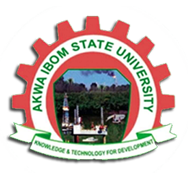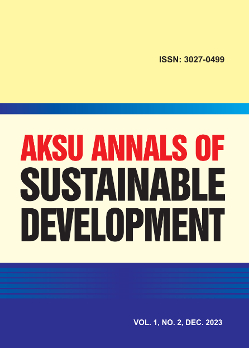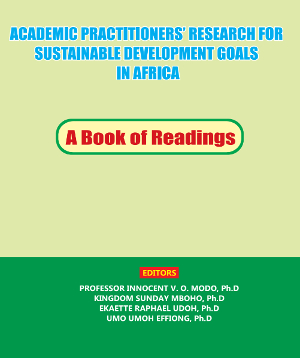THE EMERGENCE OF POST-MODERN LIBRARIES: FROM SCROLLS TO SCREENS
DOI:
https://doi.org/10.60787/AASD-v1i2-21Keywords:
Postmodernism, Digital Libraries, Digitalization, Information Resources, Internet Services, Scrolls and ScreensAbstract
The essence of this paper is to examine the progress of information storage resources from stones, rocks, tablets and scrolls to screens. As an explanatory paper with some classic illustrations in reservation and transmission of knowledge, the paper notes that changes in human society are ubiquitous and pervasive; affecting all facets of human endeavor. The paper also notes that the most propelling factor in these changes is science and technology. It is the catalyst that brought about the changes; in other words, it is science and technology that define and continue to define social realities. Thus in the past, stones, rocks, and later scrolls were accepted as valid and practical means of preserving and transmitting knowledge. By the 15th century, when printing machines were invented, it was seen as a great progress in human society. In this contemporary era, life and human activities cannot be imagined without digital programme (hardware and software). The paper concludes that the progress in science and technology is pervasive and that the emergence of digital or post-modern libraries is to make learning, teaching, and transmission of knowledge and preservation of knowledge easier, simpler, and more convenient. To keep pace with other nations of the world, the paper suggests that scholarships should be awarded to Nigerians to study robotic engineering, machine learning, and artificial intelligence.
Downloads
References
Adegbore M.A (2011). University faculty use of electronic resources: A review of the recent Literature.
Agha E., Ukommi A., Ekpenyong O. and Effiong U. (2020). Establishing the Nexus between Technical Education and Industrial Development in Nigeria. Journal of Research in Education and Society, 11(1), 38-56.
Agolou C.C and Agulou I.E. (2002). Libraries and Information management in Nigeria; Jos, FAB Anieh Nigeria limited.
Akanwa, C. and Anyanwu, J. (2017). Information resources in libraries; Owerri, Supreme Publishers.
Ashton, T.S. (1975). The Industrial Revolution 1760-1830, London: Oxford Universitry Press.
Babatope I.S &Nwosu M.C (2016). Establishing and Managing Digital Libraries in the Dynamic Information Environment of Tertiary Institution in Nigeria, Ebonyi Journal of Library and Information Science 3(1), 158-178.
Chuku C.D (2022) Science and Technology: Redefining the human society. Port Harcourt Polytechnic Academic Research Journal, pp 241-248.
Chuku C.D (2022) Science and technology: The changing pattern of human society; Port Harcourt, Emu integrated Services Limited.
Chuku, C.D (2017) Understanding sociological perspectives; Port Harcourt, Emu Integrated Services Digital Library Federation.(2000) https://www.diglib.org/.Retrieved: 15th September, 2023.
Effiong, U., Ekanem, A., and Ottong, I. (2023). Inclusive Education and Sustainable Learning Opportunities for Persons with Disabilities in Akwa Ibom State University, Obio Akpa Campus, Nigeria. In: Innocent V. O. Modo, Kingdom S.Mboho, Ekaette R.Udoh and Umo U.Effiong (Eds) Academic Practioners Research for Sustainable Development Goals in Africa. ICIDR Publishing House: Ikot Ekpene.
Eguaveon O.E.L (2011) Attitudes of library staff to the use of ICT: the case of Kenneth Dike Library, University of Ibadan, Nigeria; Ozean Journal of Social Sciences 4(1), pp 1-9
Gunaratne, S.A (2001) Convergence: Information, world system and developing countries in W.B Gudykunst, communication yearbook 25 pp 153-99 EncyclopediaBritanica.(2023).https://brittanica.com/artificial-intelligence. Retrieved: 15th September, 2023.
Meriam-webster.com.(2023). https://miriam-webster.com/library. Retrieved: 15th September, 2023.
Collins Dictionary.(2023).https://collins-dictionary.com/liberian-ship. Retrieved: 15th September, 2023.
IFLA (2014), IFLA/UNESCO, manifesto for digital libraries: Bridging the digital divide: making the world’s cultural and scientific heritage accessible to all Mahmood .K (2010). Attitudes towards the internet: A survey of LIS professionals in Pakistan;
Registration Council of Nigeria (2014).Standards and guidelines for e-library in Nigeria. Merriam-Webster Dictionary. (2023). https://www.merriam-webster.com/. Retrieved: 30th August, 2023.
NnadozieChuma (2007) Foundations of Library practice; Owerri, Springfield publishers limited Oxford Learner’s Dictionary.(2023). https://www.oxfordlearnersdictionaries.com/. Retrieved: 30th August, 2023.
Vasanthi M.C (2005) the changing environment of academic libraries: End-user education and planning strategies for libraries: End-user education and planning strategies for libraries in India. Library philosophy and practice (e-journal)
Downloads
Published
Issue
Section
License
Copyright (c) 2024 AKSU Annals of Sustainable Development

This work is licensed under a Creative Commons Attribution-NonCommercial-NoDerivatives 4.0 International License.
Manuscript content on this site is licensed under Creative Commons Licenses. Authors wishing to include figures, tables, or text passages that have already been published elsewhere are required to obtain permission from the copyright owner(s) for both the print and online format and to include evidence that such permission has been granted when submitting their papers. Any material received without such evidence will be assumed to originate from the authors.





 ICIDR Publishing House
ICIDR Publishing House